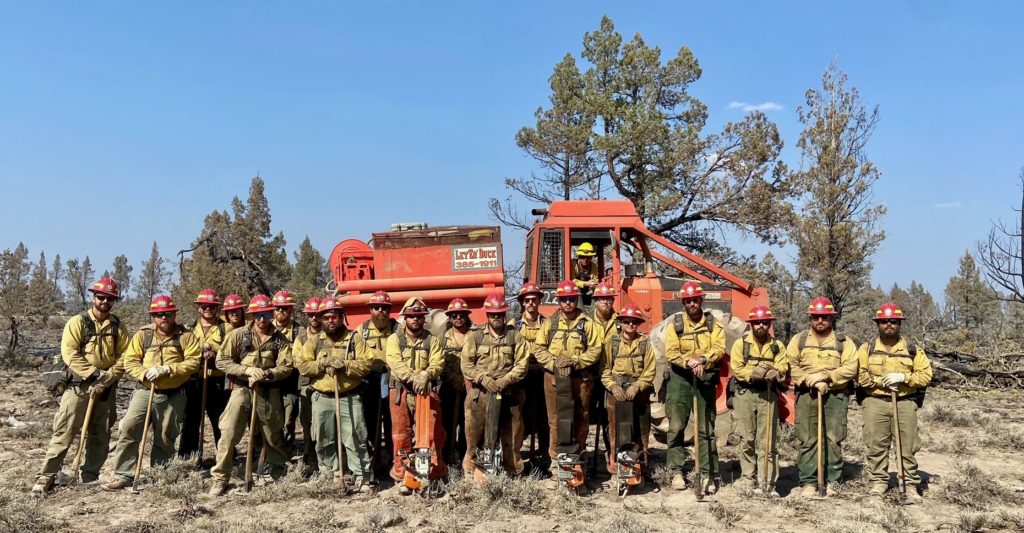Texas A&M Forest Service hand crew mobilized
Among U.S. fire personnel sent to help with Oregon's Cedar Creek, other out-of-state fires
Last week, a diverse team of wildland firefighters from the Texas A&M Forest Service was mobilized to the Cedar Creek Fire in Oregon. The 20-person crew is supporting the Willamette National Forest in fighting a wildfire that has burned more than 112,000 acres.

The Lone Star State Type II Initial Attack Hand Crew includes highly skilled and well-trained individuals from all divisions of the Texas A&M Forest Service. This is the third year in a row the crew has mobilized for wildfire response in another state.
“Mobilizing the hand crew to out-of-state incidents lets qualified personnel and trainees gain unique experiences,” said Crockett Pegoda, crew boss trainee for the Lone Star State Hand Crew. “In Texas, we were fortunate to receive support from other states this year. It’s great that we can reciprocate that support.”
According to the National Interagency Fire Center, 94 large fires are burning across the U.S., with more than 15,000 wildland firefighters and support personnel committed to these incidents.
Thirty-four Texas A&M Forest Service personnel are currently responding to wildfire incidents in California, Montana, Oregon and Washington.
Additional support to other states
In addition to the hand crew, two engine crews and multiple support personnel are supporting wildfires in other states. All resources will complete an assignment lasting 14 to 21 days before returning to Texas.
Since Jan. 1, local, state and federal firefighters, including those from Texas A&M Forest Service and Texas Intrastate Fire Mutual Aid System, have responded to 9,481 wildfires for 638,540 acres burned across Texas. During the most significant wildfire season since 2011, Texas A&M Forest Service mobilized more than 4,400 firefighters and support staff from across the nation to support the state’s response.
“We received tremendous support from land management and forestry agencies across the country during an extended fire season,” said Wes Moorehead, Texas A&M Forest Service fire chief. “Sending our personnel to incidents outside Texas not only ensures that states have essential personnel and resources to manage their incidents but also provides crucial training opportunities for our staff, allowing us to increase our capacity in Texas.”
The National Multi-Agency Coordinating Group has moved the National Preparedness Level to 3 out of 5, as multiple states experience wildfire activity with a large commitment from national resources. The state of Texas moved to Level 1 on Sept. 6 due to rainfall through the end of August and a significant decrease in wildfire activity across the state. Wildfire potential across the state remains low.
Texas A&M Forest Service is dedicated to protecting Texas residents and natural resources from wildfire and all-hazard incidents, even as national activity increases. The agency continues to monitor conditions and assess needs locally.
For current conditions and wildfire outlook, read the Texas Fire Potential Outlook at https://bit.ly/3kemhbG.
For additional information on the Texas A&M Forest Service Lone Star State Type II Initial Attack Hand Crew, visit https://bit.ly/LSSHandCrew.


